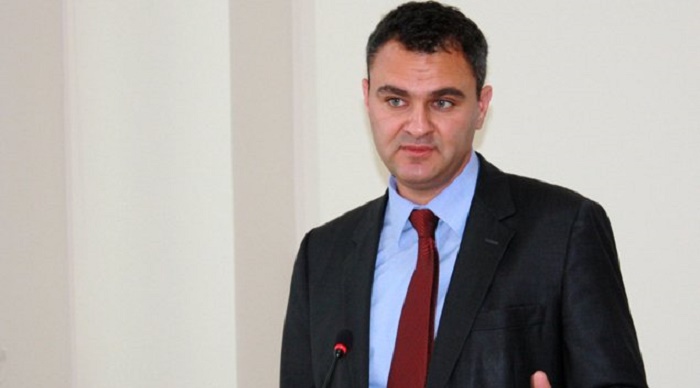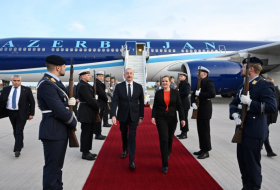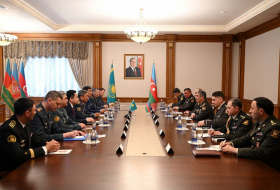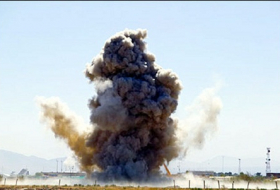Tuncer noted that Turkey is greatly concerned with the recent large-scale attacks and ceasefire violations by Armenia against Azerbaijan along the line of contact in Nagorno-Karabakh, as well as in Nakhchivan, which caused military and civilian casualties.
The OSCE Minsk Group, which mediates the Nagorno-Karabakh conflict since 1994, had many unsuccessful attempts at finding the solution to the conflict, according to Tuncer.
The current status quo is actually not sustainable anymore, he noted.
"We expect the international community, especially the Minsk Group co-chairs to take responsibility and urge Armenia to put an end to armed provocations," said the diplomat.
On the night of April 2, 2016, all the frontier positions of Azerbaijan were subjected to heavy fire from the Armenian side, which used large-caliber weapons, mortars and grenade launchers. The armed clashes resulted in deaths and injuries among the Azerbaijani population. Azerbaijan responded with a counter-attack, which led to liberation of several strategic heights and settlements.
Military operations were stopped on the line of contact between Azerbaijani and Armenian armies on Apr. 5 at 12:00 (UTC/GMT + 4 hours) with the consent of the sides, Azerbaijan`s Defense Ministry earlier said. Ignoring the agreement, the Armenian side again started violating the ceasefire.
The conflict between the two South Caucasus countries began in 1988 when Armenia made territorial claims against Azerbaijan. As a result of the ensuing war, in 1992 Armenian armed forces occupied 20 percent of Azerbaijan, including the Nagorno-Karabakh region and seven surrounding districts. The 1994 ceasefire agreement was followed by peace negotiations. Armenia has not yet implemented four UN Security Council resolutions on withdrawal of its armed forces from the Nagorno-Karabakh and the surrounding districts.
Tuncer further said that Turkey is fully committed to continue to develop good relations based on mutual respect with all countries in the South Caucasus.
"We believe that this region should not be seen as the sphere of influence of any power," said Tuncer. "The region`s countries have the right to determine their path in line with their national interests."
Tuncer said that Turkey`s constructive approach towards the region was met by similar understanding by Georgia and Azerbaijan and today these countries improve relations and cooperation with Turkey.
Tuncer noted that Azerbaijan, Georgia and Turkey have many big projects like Baku-Tbilisi-Ceyhan oil pipeline, Baku-Tbilisi-Erzurum gas pipeline, Baku-Tbilisi-Kars railway project, TANAP gas pipeline project.
Armenia, according to him, is missing cooperation opportunities in this region, but Turkey hopes that the country will see the benefits of this cooperation.
More about:
















































